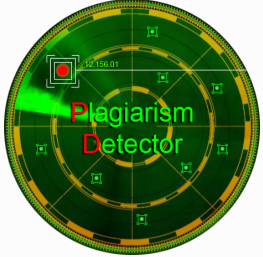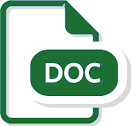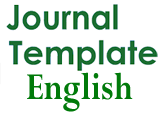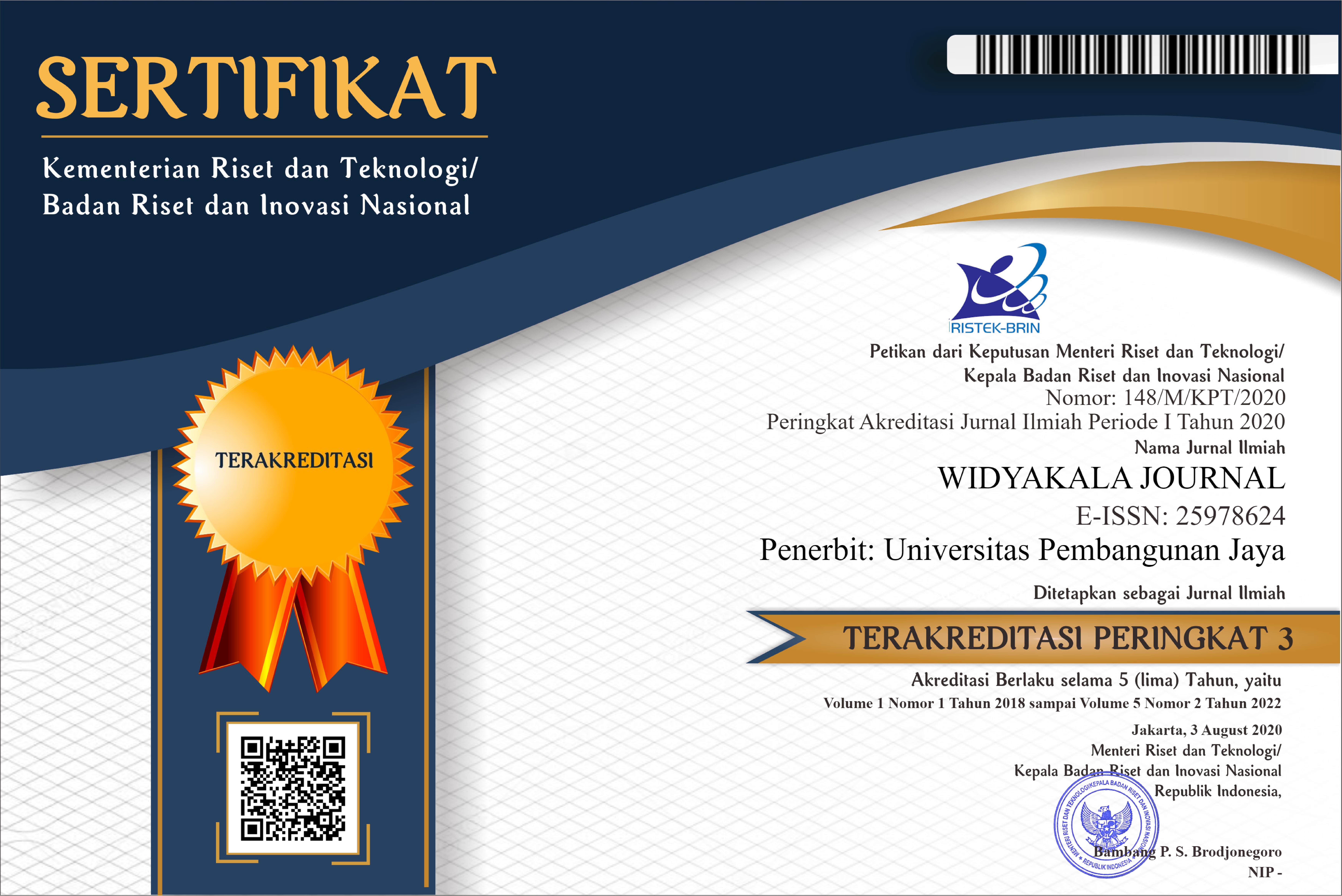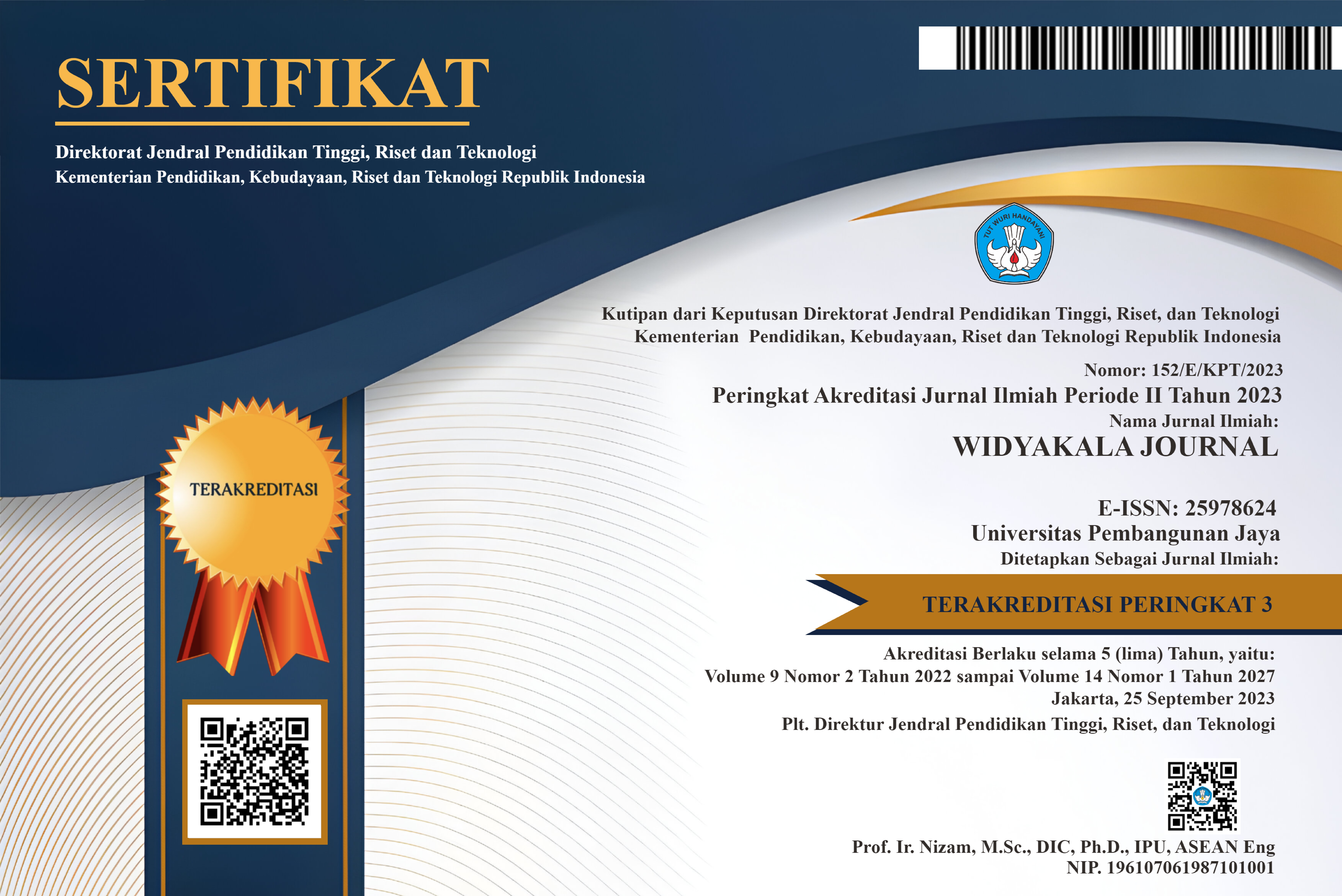Updated, March 2025
Peningkatan Kualitas Pelayanan Kereta Komuter Berdasarkan Persepsi Pengguna Dengan Menggunakan Metode ServQual dan Zone of Tolerance: Studi Kasus Tanah Abang DKI Jakarta
Abstract
This study focuses on the extent to which commuter train users are satisfied with the services provided by service providers. The purpose of this study was to find out the level of satisfaction of commuter train users while at the same time providing service improvement efforts to be used as evaluation material for service providers. The method used is Service Quality and Zone of tolerance with the help of a questionnaire that is prepared according to the five dimensions of service quality and refers to PM. 48 of 2015. The data collection method was carried out by distributing questionnaires containing 23 statement attributes to respondents, respondents in this study were commuter train users who had an age range of 17-50 years and used commuter trains at least four times a week. The data analysis method uses gap 5 ServQual and Zone of tolerance calculation. The results showed that the value of the ServQual gap in all statement attributes in the questionnaire was negative, then there were several statement attributes that were still below the tolerance zone and there were requests from potential users about the queue time when entering the station. The conclusion of this study is that commuter train users are still not satisfied with the services provided and there are priority service improvements that must be considered by PT. KCI.
Keywords
Full Text:
PDFReferences
Azhar, M. E., Jufrizen, J., Prayogi, M. A., & Sari, M. (2019). The role of marketing mix and service quality on tourist satisfaction and loyalty at Samosir. Independent Journal of Management & Production, 10(5), 1662. https://doi.org/10.14807/ijmp.v10i5.937
Chen, J. (2022). An Extended Zone of Tolerance Method to Measure Service Quality. 4, 86–93. https://doi.org/10.23977/jsoce.2022.040118
Fang, X., Cao, C., Chen, Z., Chen, W., Ni, L., Ji, Z., & Gan, J. (2020). Using mixed methods to design service quality evaluation indicator system of railway container multimodal transport. Science Progress, 103(1), 1–27. https://doi.org/10.1177/0036850419890491
Hapsari, G., Utomo, S. H. T., & dan Imam Muthohar. (2022). Adaptasi Kebiasaan Baru (Post Pandemi) Bagi Para Pengguna Krl Commuter Line Jogja-Solo. Jurnal Penelitian Sekolah Tinggi Transportasi Darat, 13, 13–25.
Hidayat, R., Industri, J. T., & Madura, U. T. (2009). Pengaruh Kualitas Layanan, Kualitas Produk dan Nilai Nasabah Terhadap Kepuasan dan Loyalitas Nasabah Bank Mandiri. Jurnal Manajemen Dan Kewirausahaan, 11(1), 59–72. https://doi.org/10.9744/jmk.11.1.pp.59-72
Knop, K. (2019). Evaluation of quality of services provided by transport & logistics operator from pharmaceutical industry for improvement purposes. Transportation Research Procedia, 40, 1080–1087. https://doi.org/10.1016/j.trpro.2019.07.151
Luke, R., & Heyns, G. J. (2020). An analysis of the quality of public transport in Johannesburg, South Africa using an adapted SERVQUAL model. Transportation Research Procedia, 48(2019), 3562–3576. https://doi.org/10.1016/j.trpro.2020.08.095
Ojha, M. K. (2020). Quality of service delivery at railway platforms: A case of Allahabad junction railway station. Case Studies on Transport Policy, 8(3), 1087–1095. https://doi.org/10.1016/j.cstp.2020.07.012
Parasuraman, a, Berry, L. L., & Zeithaml, V. a. (1990). Guidelines for Conducting Service Quality Research. Marketing Research, 2(4), 34–45. http://scholar.google.com/scholar?hl=en&btnG=Search&q=intitle:Guidelines+for+Conducting+Service+Quality+Research#0
Pham, T. Y., & Yeo, G. T. (2019). Evaluation of Transshipment container terminals’ service quality in Vietnam: From the shipping companies’ perspective. Sustainability (Switzerland), 11(5). https://doi.org/10.3390/SU11051503
Pratandari, S. (2019). Analisis Faktor-Faktor Yang Mempengaruhi Perilaku Masyarakat Dalam Memilih Transportasi Umum Perkotaan KRL Commuter Line Indonesia.
Rijasa, M. M., Syahrial, P., Yuswadi, I., Arch, M., Ratnasari, A., Permatasari, R., Traditional, B., Approachment, H., Rosilawati, H., Saputra, A. D., I Wayan, I. N. W., & Susanta. (2019). Undagi : Jurnal Ilmiah Jurusan Arsitektur Universitas Warmadewa. Langkau Betang: Jurnal Arsitektur, 7(Juni), 36–41. http://ojs.unr.ac.id/index.php/teknikgradien/article/view/462
Siwi, D., Linggasari, D., & Angkat, H. R. S. (2020). Analisis Tingkat Ketepatan Waktu Krl Commuter Line Tanah Abang - Rangkasbitung ( Studi Kasus : Stasiun Tanah Abang ) Kereta rel listrik Standar Pelayanan Minimum , ketepatan waktu , dan GAPEKA. JMTS: Jurnal Mitra Teknik Sipil, 3(4), 1031–1044.
Yuda Bakti, I. G. M., Rakhmawati, T., Sumaedi, S., & Damayanti, S. (2020). Railway commuter line passengers’ perceived service quality: Hedonic and utilitarian framework. Transportation Research Procedia, 48(2019), 207–217. https://doi.org/10.1016/j.trpro.2020.08.016
DOI: https://doi.org/10.36262/widyakala.v10i1.632
Refbacks
- There are currently no refbacks.
Copyright (c) 2023 WIDYAKALA: JOURNAL OF PEMBANGUNAN JAYA UNIVERSITY

This work is licensed under a Creative Commons Attribution-ShareAlike 4.0 International License.
Redaksi Jurnal Widyakala
Lembaga Penelitian dan Pengabdian Kepada Masyarakat (LP2M)
Universitas Pembangunan Jaya
Jalan Cendrawasih Raya Blok B7/P, Sawah Baru, Ciputat, 15413
Telp : 021-7455555 ext 1311
widyakala.journal@upj.ac.id

